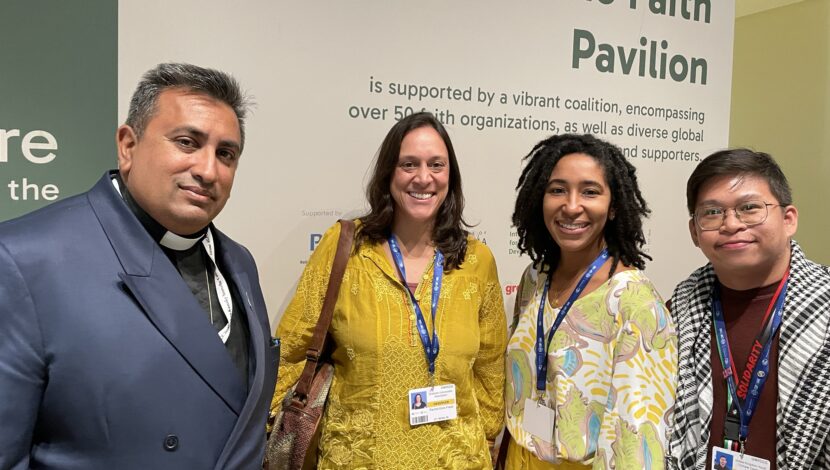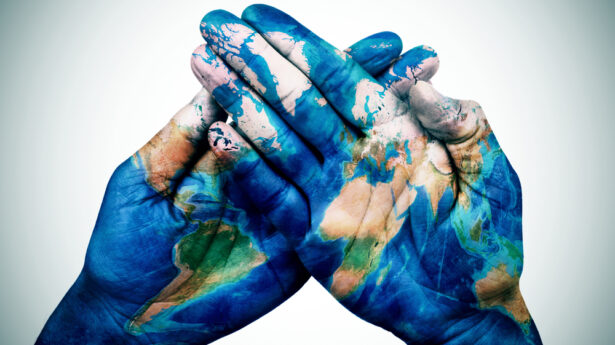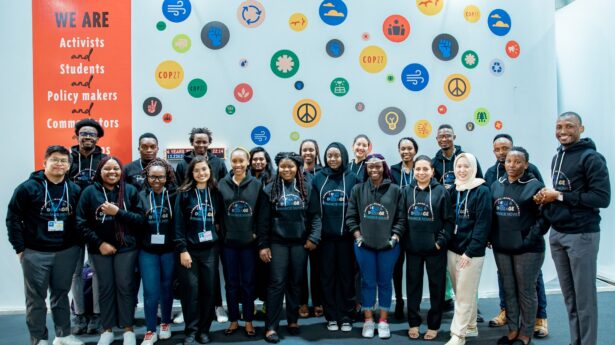The Unitarian Universalist Service Committee advances human rights through grassroots collaborations.
UUSC Supports the Inaugural Faith Pavilion at COP28

December 6, 2023
On Tuesday, December 5th, The New York Times described a new collaboration at this year’s annual Conference of Parties in the United Arab Emirates (COP28; UAE) which brings something that has been missing from previous meetings—sacred space offering spiritual sustenance to thousands of attendees from more than 200 nations.
Describing one of UUSC’s events held in the faith pavilion, a panel featuring partners addressing spiritual components of the climate crisis, the Times quotes the Rev. James Bagwhan, general secretary of the Pacific Conference of Churches, as he draws attention to the spiritual crisis that comes with displacement.
“How do I sing the Lord’s song in a strange land?”
Quoting Psalm 137 from the Bible, Rev. Bhagwan spoke eloquently of the plight of displaced peoples forced to uproot their lives and start over again in locales that are quite foreign to their own lived experience.
UUSC is serving in a leadership role by providing a place for people of faith to build community, support world leaders during tense negotiations, and discuss the intersections of faith and the climate crisis. Offering a space of faith, meditation, prayer, and peace, the faith pavilion is the first-of-its kind space at the Conference of Parties—currently in its 28th year. It is located prominently inside the Expo City COP 28 venue in a central location with crowds of observers coming through. The pavilion is an interfaith collaboration to ensure that faith leaders—including leaders from UUSC—engage with negotiators and participants, grounded with spiritual sustenance in a sanctuary adjacent to—but not completely divorced from—the talks.
The space was opened by Pope Francis and the Grand Imam of Al-Azhar, Ahmed Al-Tayeb and saw a peaceful coalescence of a range of faiths and backgrounds coming together to understand—and call attention to—the spiritual aspects of the climate crisis.
UUSC Vice President and Lead Program Officer Rachel Gore Freed moderated a panel discussion at the pavilion, “Climate-Forced Migration & Displacement, Faith & Indigenous Peoples,” which featured UUSC partners and allies discussing the intersection of the climate crisis and communities of faith as they respond to and accompany communities most impacted. Calling attention to the inadequate government responses that we’re seeing worldwide, Alicia Wallace of Equality Bahamas, Joseph Sikulu of the Pacific Climate Warriors, and Jefferson Estella of the Loss and Damage Youth Coalition spoke of the partnerships between people of faith and Indigenous communities and the alignment of values between the two groups.
In particular, the Pacific Council of Churches has played a critical role since 2009 in supporting the faith community to proactively engage on the issue of displacement and migration. Faith communities have a tremendous amount of power and ability to catalyze solutions—they already have community, convening power, and spaces to talk together and build solutions. Joseph Sikulu shared how in the Pacific, there is a deep spiritual connection to the land where they belong and the activism and community organizing.
Helping to serve as a strong moral counterweight, UUSC is working with partners to change the narrative about the climate crisis, expanding the shared understanding of climate change from solely an economic and environmental perspective to a multi-faceted analysis that includes the moral and spiritual ramifications of climate change as well.
Image Credit: UUSC

